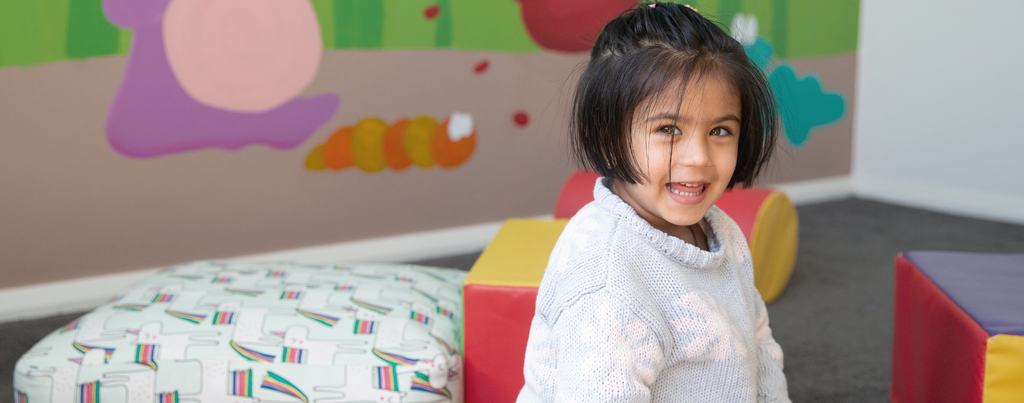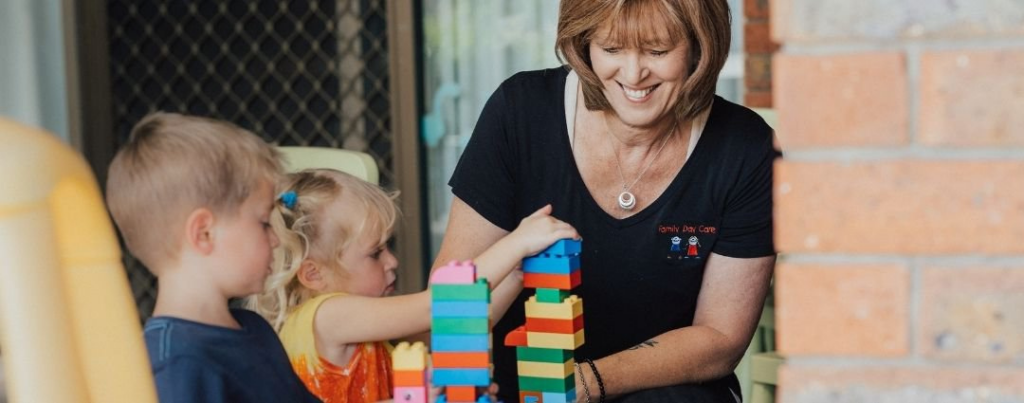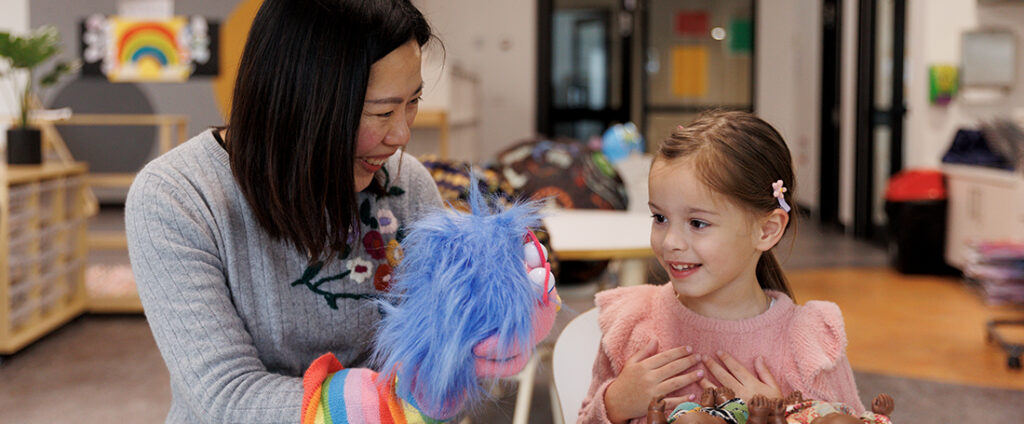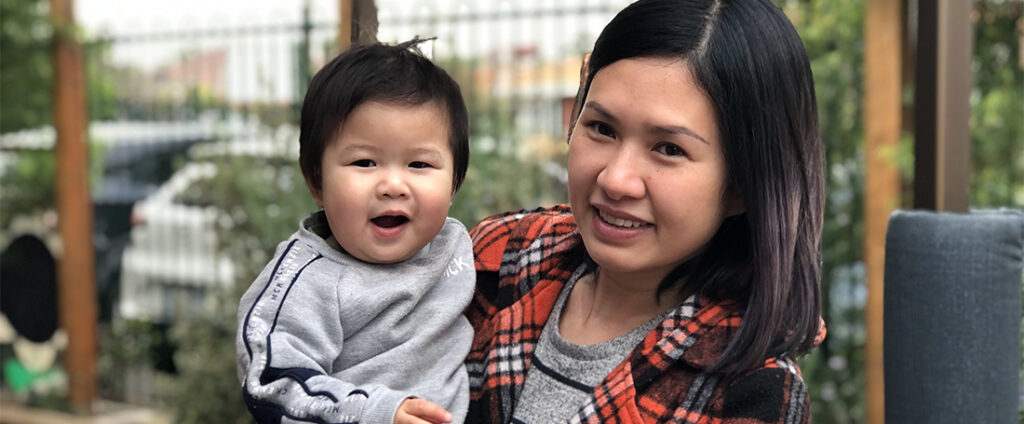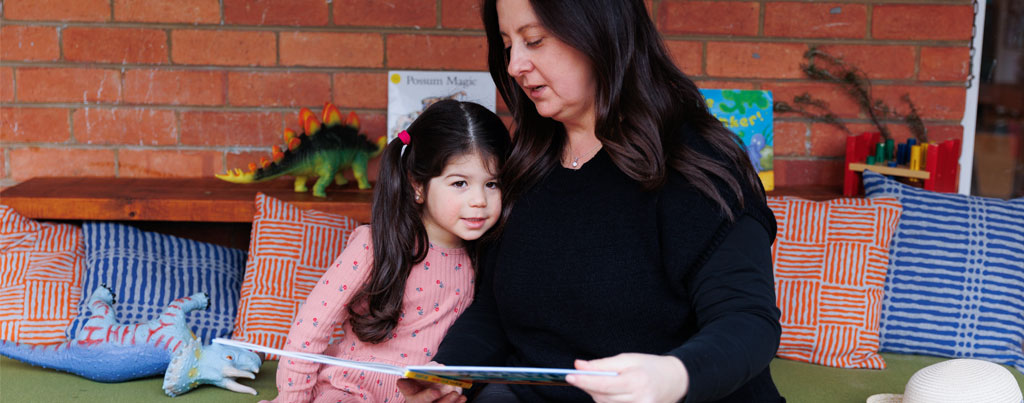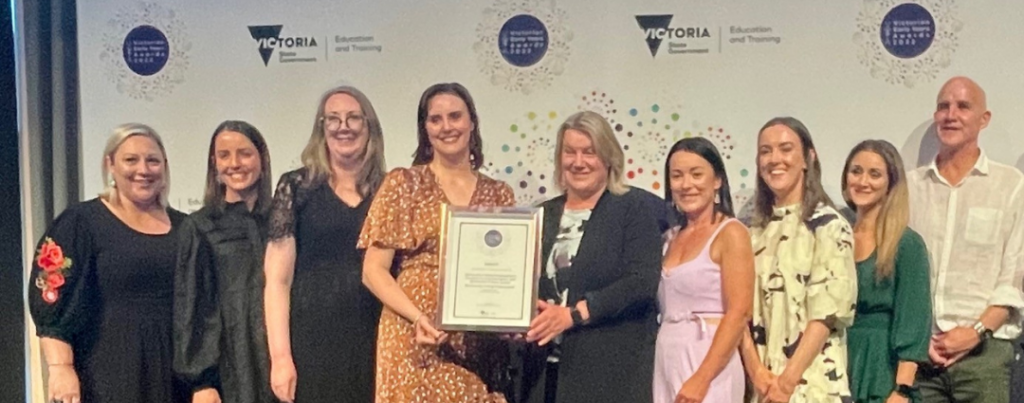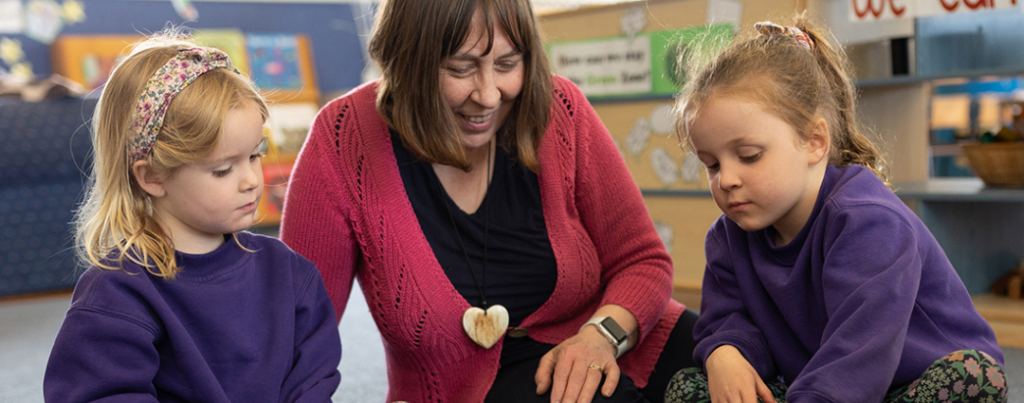Starting kindergarten is an exciting time that can bring about lots of changes for your child. At kinder, your little one will begin to make decisions for themselves and act with increasing independence.
Two years of funded kindergarten is still a relatively new concept, with the Victorian rollout – the first in Australia – launching in 2022. With children starting kinder at three-years-old, we’ve put together some tips to help your family prepare for kinder.
What should we practice at home?
You can support your child to be ready for kinder by practising these skills at home.
- Recognise their name. Kindergarten programs often use nametags to help your child know they are valued and belong in the kinder room. Ensure your child can spot the letters of their name when written so they know where their locker is and can find their own belongings, like their hat and water bottle.
- Pack their own bag. Using zippers and velcro can be tricky for children in the beginning. Practising opening and closing their bag together at home will help your child build confidence and take ownership of their own belongings. For an extra boost, encourage your child to carry their own backpack as they enter and leave the service each day.
- Dressing and undressing. Give supportive feedback to your child while they practice putting on and taking off their jacket, hat, clothes, shoes, undies and socks at home. Needing to ask for help to undress at kinder can be frustrating for children, especially if a sleeve is wet or a toileting accident has happened. If your child has the skills to find their spare clothes and change independently, this will reduce stress and will help your child feel in control.
- Follow one or two step instructions. Asking your child to complete tasks at home can really support your child’s thinking at kinder. Try providing ‘First, Then’ instructions eg: Could you please scrape your plate, then put it in the sink. ‘First’ and ‘Then’ requests are common at kinder and support your child to process and manage tasks in sequence.
- Practice playing with others. Sharing toys and waiting for a turn are common demands in the kindergarten environment that can be challenging for children in the beginning. You can support this by creating space for your child to practice following the ideas of others in play, waiting for a turn, sharing toys and packing toys away once the play is over.
- Have a toilet training plan. While children do not need to be fully toilet trained before starting kindergarten, most children will be on their toilet training journey by kinder age. Be sure you have a consistent plan in place for your child’s toileting and communicate with educators to see how this will fit into the rhythm of kindergarten.
- Practice a goodbye ritual. The morning transition of saying goodbye to loved ones can be a challenging time for children. Find times in your regular routine to practice saying goodbye to your child, with a familiar ritual of a kiss or a cuddle, before leaving your child with a trusted adult. When you later return and greet your child, you close the loop and show your child how we can reconnect with each other after time apart.
- Chat to a Uniting educator. Want to learn more about how to support your child’s kindergarten readiness? Chat to your local team today.
2025 enrolments are open now. Find your local centre and submit an enrolment request. Our teams would love to welcome you to their service!
